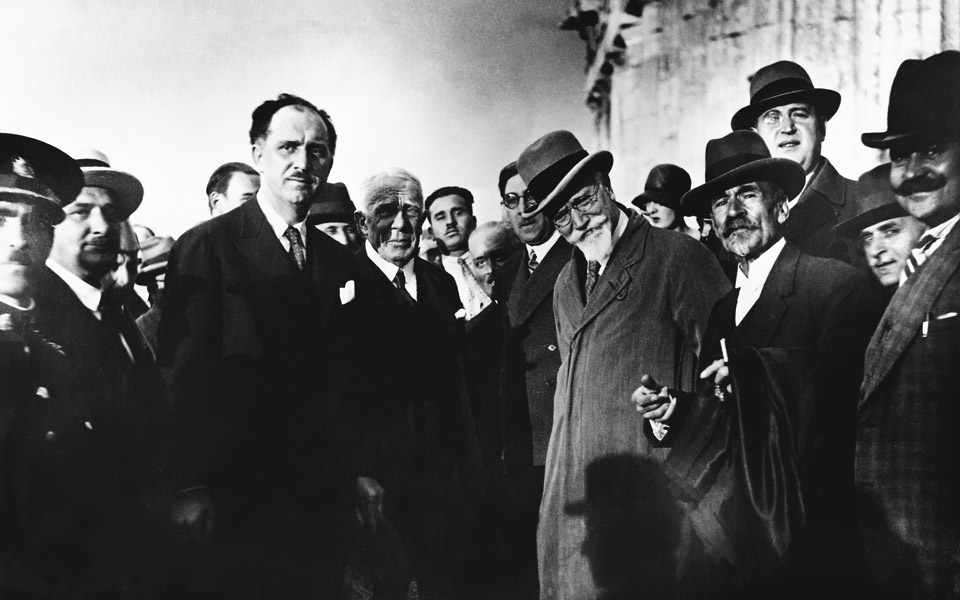The rise and fall

The rise and fall of civilizations are events that are spread out over a long period of time. In the short lives of important figures, however, they are events that can happen fast.
For the Greeks, the 20th century is split into successes, especially in the first 15 years, and tragic mistakes thereafter. First there was Eleftherios Venizelos with his reformist agenda and plans to enlarge the country in 1910-14. That was followed by the National Schism, which prompted a tug-of-war between the brilliant politician and the inadequate monarch. The former was a product of an international state of fluidity who did not shy away from risking everything, even total defeat, for large territorial gains. The latter had benefited from the benevolence of the prime minister who reinstated him as commander-in-chief after his dismissal in 1909.
As king, Constantine I undermined his benefactor, Venizelos. The 1916 National Defense coup d’etat in Thessaloniki was a necessary step by Venizelos to realign the country with the Triple Entente, a lifesaving (wise) choice of alliance. Greece, due to this decision by the liberal politician, not only managed to maintain the territories it had annexed in the Balkan Wars but also gained Thrace.
The 1920 elections set the process of Greek decline in motion. The electoral victory of the Anti-Venizelists restored an ailing monarch to the throne, who only three years earlier had been pleading with his brother-in-law, German Emperor Wilhelm II, to allow him to fight against the British, French and Greek forces on the Macedonian Front in defense of Bulgaria. The Anti-Venizelist governments (with the sole exception of that led by Nikolaos Stratou) were quintessential cases of decadent management, as seen in the Asia Minor misadventure, while operating under extreme pressure from the international factor. The execution of the Anti-Venizelist leaders in 1922, following the notorious Trial of the Six, robbed the country of a credible opposition party and doomed the politics of the interwar period to be defined by a series of Venizelist military aberrations.
Both political sides of the National Schism were partly responsible for the Metaxas dictatorship, but it can mostly be seen as a product of the reign of George II, who had just been restored to the throne by the dictatorship led by General Georgios Kondylis and a plebiscite widely condemned as fraudulent. Part of the blame also lies with Venizelos, as the abortive coup of 1935, instead of ensuring that monarchy would not return to Greece, hastened its arrival.
The only glorious moment of this popular spirit was the short-lived triumph of a finally united nation in October 1940. Even if the Axis occupation rapidly followed, and the subsequent tragedy of the Civil War it led to, that moment of virtuous greatness in the mountains of Albania was a unique legacy of courage for subsequent Greeks.
Thanos Veremis is professor emeritus of political history at the University of Athens and vice president of the Hellenic Foundation for European and Foreign Policy (ELIAMEP).





